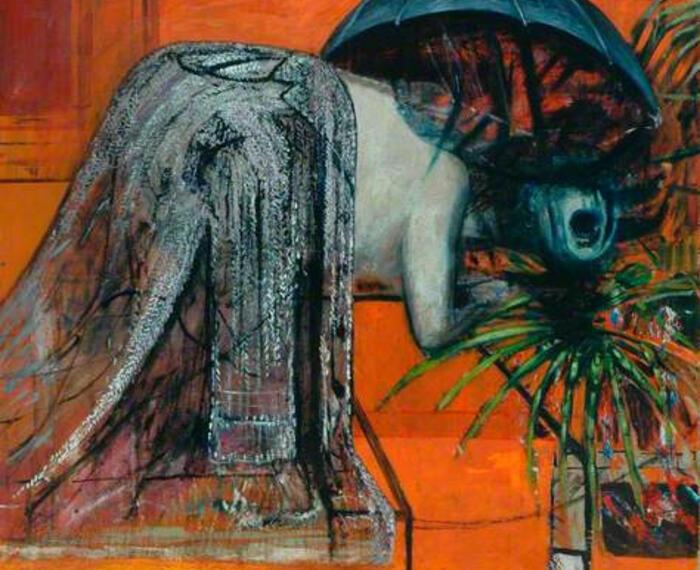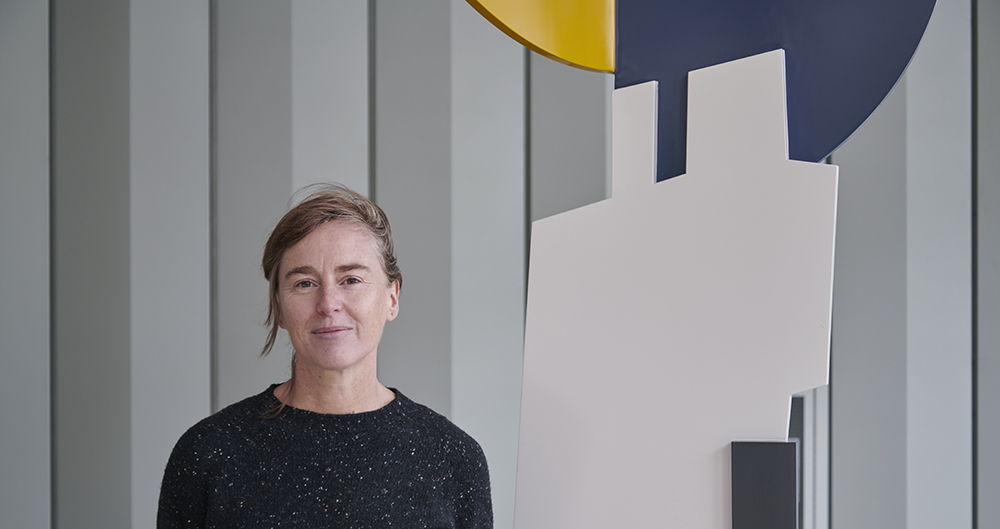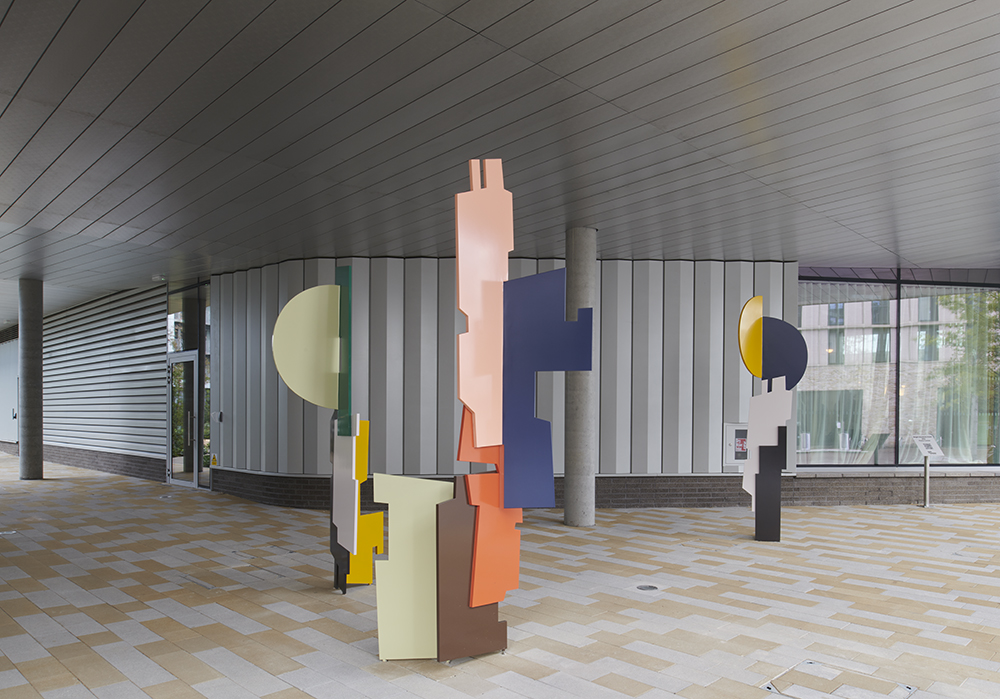


In 2021, artist Fiona Curran was commissioned by lifestyle aparthotel brand Locke to develop a site-specific work for Turing Locke, in Eddington, Cambridge.
CAS*C had previously worked with the University of Cambridge at Eddington and was approached by Locke to curate a new work that would draw upon the history of the landscape and people at Eddington.
Curran’s work, Bright Shadows Point, connects the rich and diverse history of Eddington with its progressive future, and is inspired by the research undertaken by Cambridge Archaeological Unit at the University of Cambridge. Over the course of 30 years, the Cambridge Archaeological Unit has unearthed a network of settlements dating back several thousand years at its excavation site in Eddington.
Notable finds from the site include a Roman villa, which had been buried underneath the local Park and Ride site, Roman cinerary urns and crockery, Medieval copper brooches and jewellery, and Anglo-Saxon artefacts including combs and kitchen utensils.

Bright Shadows Point explores the archaeology of the site as well as the act of mark-making that is associated with archaeology. Curran draws on the shapes that have been cut into the landscape during digs, as well as the artefacts found within excavations.
Curran focuses on the neighbourhood’s association with astronomy, with Eddington named for the astronomer, mathematician, and physicist Sir Arthur Eddington – a University of Cambridge alumni and former resident in the local area during the early part of the twentieth century.
Eddington’s photographs, taken during a complete solar eclipse, were instrumental in mapping Einstein’s Theory of Relativity through capturing the curvature of light from the movement of stars over time. The creation of these shadows on the landscape – from both the ground level and the aerial perspective – highlight the encounters with the site from multiple perspectives.
Fiona Curran read Philosophy at the University of Manchester before studying at Manchester School of Art and the Slade School of Fine Art, she teaches at the Royal College of Art in London and works from her studio at Wysing Arts Centre in Cambridge. An interest in the poetics and the politics of landscape space is central to Curran’s practice. Fiona has exhibited widely in the UK and internationally and has undertaken a number of site-related public commissions.